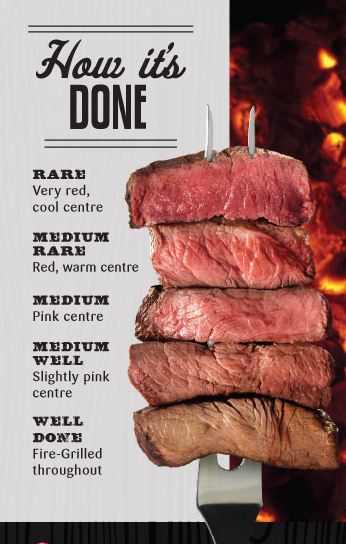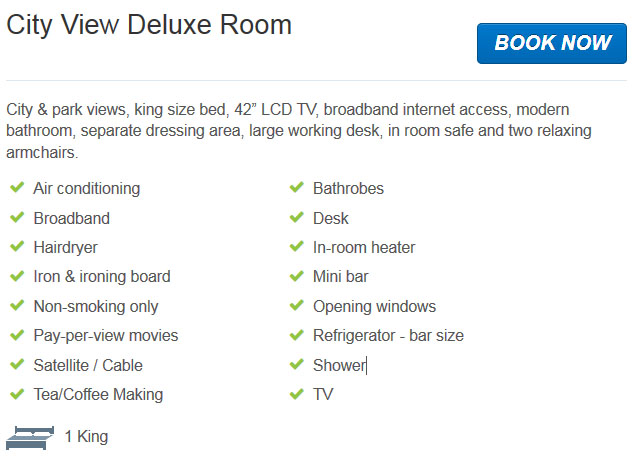Difference between revisions of "Lesson:Essentials/Tier 1"
(Created page with "{{:Lesson:Essentials/1}} {{:Lesson:Essentials/2}} {{:Lesson:Essentials/3}}") |
|||
| (One intermediate revision by the same user not shown) | |||
| Line 1: | Line 1: | ||
| + | __NOTOC__ | ||
| + | =Lesson 1= | ||
{{:Lesson:Essentials/1}} | {{:Lesson:Essentials/1}} | ||
| + | =Lesson 2= | ||
{{:Lesson:Essentials/2}} | {{:Lesson:Essentials/2}} | ||
| + | =Lesson 3= | ||
{{:Lesson:Essentials/3}} | {{:Lesson:Essentials/3}} | ||
| + | =Lesson 4= | ||
| + | {{:Lesson:Essentials/4}} | ||
| + | =Lesson 5= | ||
| + | {{:Lesson:Essentials/5}} | ||
| + | =Lesson 6= | ||
| + | {{:Lesson:Essentials/6}} | ||
| + | =Lesson 7= | ||
| + | {{:Lesson:Essentials/7}} | ||
| + | =Lesson 8= | ||
| + | {{:Lesson:Essentials/8}} | ||
| + | =Lesson 9= | ||
| + | {{:Lesson:Essentials/9}} | ||
| + | =Lesson 10= | ||
| + | {{:Lesson:Essentials/10}} | ||
| + | =Review 1= | ||
| + | {{:Lesson:Essentials/CP1}} | ||
| + | =Review 2= | ||
| + | {{:Lesson:Essentials/CP2}} | ||
Latest revision as of 18:33, 6 February 2014
Lesson 1
Grammar
Exercise
Faça o seguinte exercício. Se cometer algum erro, assista ao vídeo novamente e refaça os exercícios. Não vá adiante até obter um aproveitamento de 100%.
Caso não saiba o significado de alguma das palavras abaixo, pesquise em: www.wordreference.com
Pronunciation
Leia o seguinte texto, mas não se preocupe em entender o significado, mais tarde trabalharemos esta parte. Por hora, vamos aprender a pronúncia.
Please call Stella. Ask her to bring these things with her from the store: Six spoons of fresh snow peas, five thick slabs of blue cheese, and maybe a snack for her brother Bob. We also need a small plastic snake and a big toy frog for the kids. She can scoop these things into three red bags and we will go meet her Wednesday at the train station.
Agora, ouça várias vezes e compare a pronúncia de quatro falantes nativos.
english1, male, pittsburgh, pennsylvania, usa
english9, female, carthage, texas, usa
english41, male, wellington, new zealand
english4, female, saint anne's bay, jamaica
Lista com mais exemplos.
Vocabulary
| The English Alphabet | ||||||
|---|---|---|---|---|---|---|
| A | B | C | D | E | F | G |
| H | I | J | K | L | M | N |
| O | P | Q | R | S | T | U |
| V | W | X | Y | Z | ||
Ouça um britânico falando o alfabeto:
Para perguntar como soletramos uma palavra usamos a seguinte expressão:
- How do you spell "beautiful"?
- Como se soletra "beautiful"?
Quando uma letra se repete, usamos a expressão "double", por exemplo:
- How do you spell spoon?
- S, P, double O, N
Use o seguinte recurso para treinar o alfabeto em inglês:
Exercise
Soletre as seguintes palavras:
- boy
- girl
- dog
- match
- man
- foot
- telephone
- tooth
- bus
- glass
- baby
- bird
- chair
- person
- box
- brush
- child
- banana
- spoon
- cup
- woman
- newspaper
- dictionary
- camera
- city
- bag
Classroom English
Vamos aprender algumas frases prontas para que você possa utilizar nas aulas que estão por vir.
- Hi, how are you?
- Oi, como está você?
- I'm fine, thanks.
- Eu estou bem, obrigado(a).
- My name is ___________ and I am __________ years old.
- Meu nome é __________ e eu tenho _____________ anos de idade.
- I work as a ___________ .
- Eu sou ___________ . (função/ trabalho)
- What is the meaning of _____________ ?
- Qual o significado de _____________ ?
- How can I say ___________ in English?
- Como se diz _________ em inglês?
- Could you repeat that, please?
- Poderia repetir, por favor?
- Thanks!
- Obrigado!
Travel Bites
Para tomar um café em um país de língua inglesa, é importante saber dizer que tamanho queremos que o copo seja.
No Dunkin' Donuts, uma das maiores redes de cafés dos Estados Unidos, eles usam as palavras padrões para os tamanhos.
Elas são: small, medium, large e extra large.
Já no Starbucks, eles resolveram inventar nomes e usam tall para small, grande para medium, venti para large e trenta para extra large.
Challenge
Challenge
Participe do jogo nos comentários ao final da lição. Diga o plural da palavra escolhida pelo participante anterior e lance um desafio para o próximo participante.
Exemplo:
- The plural of the word "bat" is "bats".
- Challenge word: beer
<sidebar>
- Tier 1
- Lesson:Essentials/1|Lesson 1
- Lesson:Essentials/2|Lesson 2
- Lesson:Essentials/3|Lesson 3
- Lesson:Essentials/4|Lesson 4
- Lesson:Essentials/5|Lesson 5
- Lesson:Essentials/6|Lesson 6
- Lesson:Essentials/7|Lesson 7
- Lesson:Essentials/8|Lesson 8
- Lesson:Essentials/9|Lesson 9
- Lesson:Essentials/10|Lesson 10
</sidebar>
Lesson 2
Grammar
Pesquise o significado dos seguintes substantivos.
Faça o seguinte exercício. Se cometer algum erro, assista ao vídeo novamente e refaça os exercícios. Não vá adiante até obter um aproveitamento de 100%.
Pronunciation
m
- Lábios fechados.
| word | IPA |
|---|---|
| more | /mɔː/ |
| hammer | /ˈhæmə/ |
| sum | /sʌm/ |
n
- Lábios abertos.
- Língua tocando a parte de trás dos dentes de cima.
- Som na parte da frente da boca.
| word | IPA |
|---|---|
| nice | /naɪs/ |
| funny | /ˈfʌni/ |
| sun | /sʌn/ |
ŋ
- Lábios abertos.
- Língua tocando a parte de trás dos dentes de cima.
- Som na parte de trás da boca.
| word | IPA |
|---|---|
| ring | /rɪŋ/ |
| anger | /ˈæŋgə/ |
| thanks | /θæŋks/ |
| sung | /sʌŋ/ |
Vocabulary
Days of the week
- Sunday
- Monday
- Tuesday
- Wednesday
- Thursday
- Friday
- Saturday
- during the week
- on the weekend
Usamos a preposição on com os dias da semana, dias especiais e dias do mês. Então dizemos:
- I work on Sunday.
- Eu trabalho no domingo.
- I study on Monday.
- Eu estudo na segunda-feira.
- She works at home during the week.
- Ela trabalha em casa durante a semana.
- She studies on the weekend.
- Ela estuda nos finais de semana.
- I travel to the US on Christmas.
- Eu viajo aos Estados Unidos no natal.
- I was born on the 12th of June.
- Eu nasci no dia 12 de junho.
Note que sempre escrevemos os dias da semana em inglês com letra maiúscula.
Classroom English
Vamos aprender mais frases prontas:
- Bye! See you on ___________ .
- Tchau! vejo você na ___________ .
- How was your weekend?
- Como foi seu final de semana?
- My weekend was good / nice.
- Meu final de semana foi bom.
- See you next week.
- Vejo você semana que vem
- See you next _______ .
- Vejo você na próxima _______________ .
Travel Bites
Quando pedimos carne em um restaurante, frequentemente nos deparamos com a seguinte pergunta:
- How would you like your steak?
- Como você quer a sua carne?
A resposta deve ser dada usando algum dos seguintes termos para as temperaturas de cozimento:
- rare
- medium rare
- medium
- medium well
- well done
No Brasil, costuma-se comer carnes ao ponto (medium well) ou bem passada (well done). O que muitos acham que é mal passada, na verdade acaba sendo uma carne medium ou medium rare. Então, tome cuidado para não pedir rare e achar que significa mal passada, porque você vai reclamar que está crua.
Para pedir uma carne ao ponto você diria:
- I would like my steak medium well, please.
- Eu gostaria da minha carne ao ponto, por favor.
Challenge
Participe do jogo nos comentários ao final da lição. Diga se a palavra escolhida pelo participante anterior é countable ou uncountable e lance um desafio para o próximo participante.
Exemplo:
- Pen is a countable word.
- Challenge word: boat
{{#widget:DISQUS
|id=jointhegrove
|uniqid=Essentials/Tier 1
|url=http://thegrove.com.br/metodo/index.php/Essentials/Tier_1
}}
<sidebar>
- Tier 1
- Lesson:Essentials/1|Lesson 1
- Lesson:Essentials/2|Lesson 2
- Lesson:Essentials/3|Lesson 3
- Lesson:Essentials/4|Lesson 4
- Lesson:Essentials/5|Lesson 5
- Lesson:Essentials/6|Lesson 6
- Lesson:Essentials/7|Lesson 7
- Lesson:Essentials/8|Lesson 8
- Lesson:Essentials/9|Lesson 9
- Lesson:Essentials/10|Lesson 10
</sidebar>
Lesson 3
Grammar
Pronunciation
j
- Som de consoante
| Examples | |
|---|---|
| yet | unit |
| use | university |
| yellow | genuine |
| useful | you |
| beauty | museum |
| few | puke |
| cute | accuse |
Vocabulary
Months
- January
- February
- March
- April
- May
- June
- July
- August
- September
- October
- November
- December
Utilizamos a preposição in com meses. Então dizemos:
- I travel in July.
- Eu viajo em julho.
- I work in January.
- Eu trabalho em janeiro.
Note que sempre escrevemos os meses em inglês com letra maiúscula.
Classroom English
- Goodbye / Bye / Bye bye
- Adeus / Tchau / tchau tchau
- What is your name?
- Qual é o seu nome?
- Where do you live?
- Onde você mora?
- I live in ____________ on _______________ Street.
- Eu moro em(no/na) ____________ na rua _________________ .
- What is your phone number?
- Qual o seu número de telefone?
- What is your e-mail?
- Qual é o seu e-mail?
Travel Bites
Você sabe como se chama a esteira onde você busca as suas malas no aeroporto? E a área onde ficam as bagagens?
- Resposta: baggage carousel e baggage claim
Baggage, luggage ou bags são palavras que descrevem as malas grandes, de mão, mochilas, bolsas, etc, que usamos para viajar. Note que baggage e luggage são uncountable enquanto bags é countable. Então, podemos fazer as seguintes frases:
Itens que fazem parte da definição de luggage:
- I think my luggage has been lost. I didn't find my suitcases at the baggage claim.
- Acho que a minha bagagem foi perdida. Não achei minhas malas na esteira.
- I am bringing two bags on this trip.
- Estou levando duas malas nesta viagem.
{{#widget:DISQUS
|id=jointhegrove
|uniqid=Essentials/Tier 1
|url=http://thegrove.com.br/metodo/index.php/Essentials/Tier_1
}}
<sidebar>
- Tier 1
- Lesson:Essentials/1|Lesson 1
- Lesson:Essentials/2|Lesson 2
- Lesson:Essentials/3|Lesson 3
- Lesson:Essentials/4|Lesson 4
- Lesson:Essentials/5|Lesson 5
- Lesson:Essentials/6|Lesson 6
- Lesson:Essentials/7|Lesson 7
- Lesson:Essentials/8|Lesson 8
- Lesson:Essentials/9|Lesson 9
- Lesson:Essentials/10|Lesson 10
</sidebar>
Lesson 4
Grammar
Pronunciation
- Som de consoante
| Examples | |
|---|---|
| wet | one |
| when | queen |
| beware | quick |
| wonderful | once |
| want | worry |
Vocabulary
Family
Feminine
- great grandmother
- grandmother
- mother
- aunt
- wife
- sister
- daughter
- granddaughter
- great granddaughter
- niece
- mother-in-law
- sister-in-law
- daughter-in-law
Masculine
- great grandfather
- grandfather
- father
- uncle
- brother
- son
- grandson
- great grandson
- nephew
- father-in-law
- brother-in-law
- son-in-law
Neutral
- Parents
- Relatives
- Cousin
- Child / Children
- Kids
- Siblings
Utilize o seguinte recurso para visualizar melhor as relações de parentesco e ouvir a pronúncia.
Travel Bites
Não importa como você chama o pão que costuma comer, se é de pão francês, pão de sal, pão careca, pão d'água ou cacetinho; não espere encontrá-lo tão facilmente quando estiver viajando pelos Estados Unidos. Em vez disso, o que você vai ver por todo lugar são bagels; um tipo de pão um pouco mais denso e com um furo no meio.
Existem vários tipos de bagels e eles geralmente são servidos as is, toasted, with cream cheese: on top ou on the side.
Estes são apenas alguns dos muitos tipos de bagels que existem:
- Sesame
- Plain
- Whole wheat
- Cinnamon Raisin
- Everything
- Onion
- Blueberry
- May I have a whole wheat bagel, toasted, with veggie cream cheese on top, please?
- Eu gostaria de um bagel de trigo integral, torrado, com cream cheese vegetariano em cima, por favor.
- I will have a cinnamon raisin bagel as is, please.
- Eu quero um bagel de passas e canela como está, por favor.
- Can you put the cream cheese on the side, please?
- Você pode colocar o cream cheese separado, por favor?
{{#widget:DISQUS
|id=jointhegrove
|uniqid=Essentials/Tier 1
|url=http://thegrove.com.br/metodo/index.php/Essentials/Tier_1
}}
<sidebar>
- Tier 1
- Lesson:Essentials/1|Lesson 1
- Lesson:Essentials/2|Lesson 2
- Lesson:Essentials/3|Lesson 3
- Lesson:Essentials/4|Lesson 4
- Lesson:Essentials/5|Lesson 5
- Lesson:Essentials/6|Lesson 6
- Lesson:Essentials/7|Lesson 7
- Lesson:Essentials/8|Lesson 8
- Lesson:Essentials/9|Lesson 9
- Lesson:Essentials/10|Lesson 10
</sidebar>
Lesson 5
Grammar
Conjulgue os seguintes verbos no Simple Present:
Pronunciation
h
- Som de consoante
| Examples | |
|---|---|
| hot | whole |
| ahead | hear |
| hard | hello |
| hospital | huge |
Vocabulary
| Numbers | |||
|---|---|---|---|
| 0 - Zero | 10 - Ten | 20 - Twenty | 1000 - One thousand |
| 1 - One | 11 - Eleven | 30 - Thirty | 10,000 - Ten thousand |
| 2 - Two | 12 - Twelve | 40 - Forty | 100,000 - One hundred thousand |
| 3 - Three | 13 - Thirteen | 50 - Fifty | 1,000,000 - One Million |
| 4 - Four | 14 - Fourteen | 60 - Sixty | 1,000,000,000 - One Billion |
| 5 - Five | 15 - Fifteen | 70 - Seventy | 1,000,000,000,000 - One trillion |
| 6 - Six | 16 - Sixteen | 80 - Eighty | |
| 7 - Seven | 17 - Seventeen | 90 - Ninety | |
| 8 - Eight | 18 - Eighteen | 100 - One hundred | |
| 9 - Nine | 19 - Nineteen | ||
Utilize o seguinte recurso para treinar a pronúncia.
Agora diga os seguintes números:
- 18
- 76
- 91
- 100
- 600
- 501
- 350
- 734
- 1000
- 2,013
- 1,020
- 1,500
- 15,700
- 6,428
- 700,500
- 21,844,729
Classroom English
Aprenda mais algumas frases:
- I am sorry.
- Me desculpe.
- Excuse me
- Com licença
- I will be back in a minute.
- Eu volto em um minuto
- I need to take this call.
- Eu preciso atender a esta chamada.
- May I go to the restroom?
- Posso ir ao banheiro?
Travel Bites
{{#widget:DISQUS
|id=jointhegrove
|uniqid=Essentials/Tier 1
|url=http://thegrove.com.br/metodo/index.php/Essentials/Tier_1
}}
<sidebar>
- Tier 1
- Lesson:Essentials/1|Lesson 1
- Lesson:Essentials/2|Lesson 2
- Lesson:Essentials/3|Lesson 3
- Lesson:Essentials/4|Lesson 4
- Lesson:Essentials/5|Lesson 5
- Lesson:Essentials/6|Lesson 6
- Lesson:Essentials/7|Lesson 7
- Lesson:Essentials/8|Lesson 8
- Lesson:Essentials/9|Lesson 9
- Lesson:Essentials/10|Lesson 10
</sidebar>
Lesson 6
Grammar
Pronunciation
l
- Som de consoante
- O som é um pouco diferente se está no início ou final da palavra.
| Examples | |
|---|---|
| light | valley |
| feel | life |
| bell | level |
| will | love |
| let | fall |
Vocabulary
Body
- Head
- Neck
- Chest
- Nipple
- Bellybutton
- Armpit
- Arm
- Abdomen/Belly/Stomach
- Wrist
- Elbow
- Hip
- Thigh
- Knee
- Leg
- Shoulder
- Shoulder blade
- Behind / Butt
- Back
- Buttocks
- Calf
Hand
- Thumb
- Index Finger
- Middle Finger
- Ring finger
- Little Finger / Pinky
- Palm
Finger
- Knuckle
- Finger nail
Foot
- Ankle
- Arch
- Big Toe
- Toes
- Heel
Utilize o seguinte recurso para treinar a pronúncia e saber o significado das palavras.
{{#widget:DISQUS
|id=jointhegrove
|uniqid=Essentials/Tier 1
|url=http://thegrove.com.br/metodo/index.php/Essentials/Tier_1
}}
<sidebar>
- Tier 1
- Lesson:Essentials/1|Lesson 1
- Lesson:Essentials/2|Lesson 2
- Lesson:Essentials/3|Lesson 3
- Lesson:Essentials/4|Lesson 4
- Lesson:Essentials/5|Lesson 5
- Lesson:Essentials/6|Lesson 6
- Lesson:Essentials/7|Lesson 7
- Lesson:Essentials/8|Lesson 8
- Lesson:Essentials/9|Lesson 9
- Lesson:Essentials/10|Lesson 10
</sidebar>
Lesson 7
Grammar
Faça o seguinte exercício. Se cometer algum erro, assista ao vídeo novamente e refaça os exercícios. Não vá adiante até obter um aproveitamento de 100%.
Caso não saiba o significado de alguma das palavras abaixo, pesquise em: www.wordreference.com
Pronunciation
r
- Som de consoante
- Em inglês britânico e do nordeste dos Estados Unidos o r não é pronunciado no final das palavras, exceto quando, em uma frase, ele se conecta a uma vogal.
Exemplo:
This is my car. (r não pronunciado em car) The car is mine. (car is - r pronunciado)
| Examples | |
|---|---|
| right | wrong |
| sorry | arrange |
| practice | price |
| fridge | run |
Vocabulary
Face
- Hair
- Forehead
- Temple
- Cheek
- Ear
- Ear Lobe
- Beard
- Moustache
- Chin
- Nostrils
- Nose
- Hairy
- Scalp
- Sideburns
- Goatee
- Stubble
- Dimple
Expressions
- To smile
- To frown
Eye and mouth
- Eyebrow
- Eyelid
- Eyelash
- Eye
- Iris
- Pupil
- Lip
- Mouth
- Tongue
- Bad breath
Utilize o seguinte recurso para treinar a pronúncia e conhecer o significado das palavras.
Classroom English
- I finished this exercise.
- Eu terminei esse exercício.
- I finished this lesson.
- Eu terminei esta lição.
- Could you explain that again?
- Poderia explicar isso de novo?
- I didn't understand that.
- Eu não entendi isso.
{{#widget:DISQUS
|id=jointhegrove
|uniqid=Essentials/Tier 1
|url=http://thegrove.com.br/metodo/index.php/Essentials/Tier_1
}}
<sidebar>
- Tier 1
- Lesson:Essentials/1|Lesson 1
- Lesson:Essentials/2|Lesson 2
- Lesson:Essentials/3|Lesson 3
- Lesson:Essentials/4|Lesson 4
- Lesson:Essentials/5|Lesson 5
- Lesson:Essentials/6|Lesson 6
- Lesson:Essentials/7|Lesson 7
- Lesson:Essentials/8|Lesson 8
- Lesson:Essentials/9|Lesson 9
- Lesson:Essentials/10|Lesson 10
</sidebar>
Lesson 8
Grammar
Pronunciation
b
- Som de consoante
| Examples | |
|---|---|
| back | bag |
| hobby | habit |
| job | Bob |
| cab | symbol |
Vocabulary
Fruits
- Apple
- Apple slice
- Apple core
- Banana
- Peel
- Grapes
- Raisins
- Jelly
- Avocado
- Cherry
- Olive
- Fig
- Orange
- Lemon
- Lime
- Orange juice
- Grapefruit
- Pear
- Plum
- Prune
- Peach
- Kiwi
- Coconut
- Mango
- Pineapple
Melons
- Watermelon
- Cantaloupe
Berries
- Strawberry
- Blueberry
- Blackberry
- Raspberry
Utilize o seguinte recurso para treinar a pronúncia e conhecer o significado das palavras.
Classroom English
- Good morning
- Bom dia!
- Good afternoon
- Boa tarde!
- Good evening
- Boa noite (quando se encontra)
- Good night
- Boa noite (quando se despede)
- Have a nice day!
- Tenha um bom dia!
{{#widget:DISQUS
|id=jointhegrove
|uniqid=Essentials/Tier 1
|url=http://thegrove.com.br/metodo/index.php/Essentials/Tier_1
}}
<sidebar>
- Tier 1
- Lesson:Essentials/1|Lesson 1
- Lesson:Essentials/2|Lesson 2
- Lesson:Essentials/3|Lesson 3
- Lesson:Essentials/4|Lesson 4
- Lesson:Essentials/5|Lesson 5
- Lesson:Essentials/6|Lesson 6
- Lesson:Essentials/7|Lesson 7
- Lesson:Essentials/8|Lesson 8
- Lesson:Essentials/9|Lesson 9
- Lesson:Essentials/10|Lesson 10
</sidebar>
Lesson 9
Grammar
Pronunciation
d
- Som de consoante
| Examples | |
|---|---|
| day | ladder |
| odd | dog |
| additional | did |
| dame | doom |
Vocabulary
Vegetables
- Lettuce
- Cabbage
- Potato
- Corn
- Mushroom
- Celery
- Carrot
- Broccoli
- Sweet Potatoes
- Pepper
- Salad
- Cucumber
- Zucchini
- Pumpkin
- Beet
- Radish
- Asparagus
- Peas
- Beans
- Pod
- Eggplant
- Bell Pepper
- Onion
- Cauliflower
- Garlic
- Garlic clove
- Green Onion
Utilize o seguinte recurso para treinar a pronúncia e conhecer o significado das palavras.
Exercise
1. Use o Cambridge Learner's Dictionary para descobrir se as palavras do vocabulário acima são countable ou uncountable.
2. Siga o exemplo e fale 5 vegetais que você gosta e 5 que não gosta.
- I like onions but I don't like eggplant.
- Gosto de cebola mas não gosto de berinjela.
{{#widget:DISQUS
|id=jointhegrove
|uniqid=Essentials/Tier 1
|url=http://thegrove.com.br/metodo/index.php/Essentials/Tier_1
}}
<sidebar>
- Tier 1
- Lesson:Essentials/1|Lesson 1
- Lesson:Essentials/2|Lesson 2
- Lesson:Essentials/3|Lesson 3
- Lesson:Essentials/4|Lesson 4
- Lesson:Essentials/5|Lesson 5
- Lesson:Essentials/6|Lesson 6
- Lesson:Essentials/7|Lesson 7
- Lesson:Essentials/8|Lesson 8
- Lesson:Essentials/9|Lesson 9
- Lesson:Essentials/10|Lesson 10
</sidebar>
Lesson 10
Grammar
Pronunciation
dj
- Som de consoante
| Examples | |
|---|---|
| joke | lodger |
| bridge | judge |
| junk | bungee jumping |
| huge | average |
Vocabulary
Ordinal Numbers
| Ordinal Numbers | ||||
|---|---|---|---|---|
| First | Eleventh | Twenty-first | Thirtieth | One-hundredth |
| Second | Twelfth | Twenty-second | Fortieth | Hundred and first |
| Third | Thirteenth | Twenty-third | Fiftieth | Two Hundredth |
| Fourth | Fourteenth | Twenty-fourth | Sixtieth | Thousandth |
| Fifth | Fifteenth | Twenty-fifth | Seventieth | Millionth |
| Sixth | Sixteenth | Twenty-sixth | Eightieth | |
| Seventh | Seventeenth | Twenty-seventh | Ninetieth | |
| Eighth | Eighteenth | Twenty-eighth | ||
| Ninth | Nineteenth | Twenty-ninth | ||
| Tenth | Twentieth | |||
Utilize o seguinte recurso para treinar a pronúncia.
Classroom English
- When is your birthday?
- Quando é seu aniversário?
- My birthday is in __________
- Meu aniversário é em_________
- When were you born?
- Quando você nasceu?
- Where were you born?
- Onde você nasceu?
- I was born in ___________
- Eu nasci em ____________ (colocar mês, ano ou lugar)
{{#widget:DISQUS
|id=jointhegrove
|uniqid=Essentials/Tier 1
|url=http://thegrove.com.br/metodo/index.php/Essentials/Tier_1
}}
<sidebar>
- Tier 1
- Lesson:Essentials/1|Lesson 1
- Lesson:Essentials/2|Lesson 2
- Lesson:Essentials/3|Lesson 3
- Lesson:Essentials/4|Lesson 4
- Lesson:Essentials/5|Lesson 5
- Lesson:Essentials/6|Lesson 6
- Lesson:Essentials/7|Lesson 7
- Lesson:Essentials/8|Lesson 8
- Lesson:Essentials/9|Lesson 9
- Lesson:Essentials/10|Lesson 10
</sidebar>
Review 1
Review
Exercícios de revisão.
Se você não conhecer alguma das palavras, pesquise utilizando o seguinte dicionário:
http://www.wordreference.com/pten/
1. Passe as seguintes frases para o negativo.
- He has many friends in New York.
- They are tired.
- Linda is at home.
- We travel in July.
- My family is very big.
- My friends are very happy.
- They speak English very well.
- She works at the bookstore.
2. Passe as seguintes frases para o interrogativo.
- He has many friends in New York.
- They are tired.
- Linda is at home.
- We travel in July.
- My family is very big.
- My friends are very happy.
- They speak English very well.
- She works at the bookstore.
3. Siga o modelo.
She has many friends. (they)
They have many friends.
- He has many friends in New York. (we)
- They are tired. (Susan)
- Linda is at home. (They)
- We travel in July. (My friend)
- My family is very big. (The house)
- My friends are very happy. (Larry)
- They speak English very well. (I)
- She works at the bookstore. (You)
4. Crie frases com as seguintes expressões.
- in July
- on Wednesday
- in 1997
- with her
- lives with us
- my grandmother
- an apple
- they have
- we don't
- it isn't
- I like my
- He doesn't
5.Ouça novamente o texto "Please Call Stella".
Ouça pronúncias de lugares diferentes.
http://accent.gmu.edu/browse_language.php?function=find&language=english
Please call Stella. Ask her to bring these things with her from the store: Six spoons of fresh snow peas, five thick slabs of blue cheese, and maybe a snack for her brother Bob. We also need a small plastic snake and a big toy frog for the kids. She can scoop these things into three red bags, and we will go meet her Wednesday at the train station.
{{#widget:DISQUS
|id=jointhegrove
|uniqid=Essentials/Tier 1
|url=http://thegrove.com.br/metodo/index.php/Essentials/Tier_1
}}
<sidebar>
- Tier 1
- Lesson:Essentials/CP1|Review 1
- Lesson:Essentials/CP2|Review 2
</sidebar>
Review 2
Exercícios de revisão.
Se você não conhecer alguma das palavras, pesquise utilizando o seguinte dicionário:
http://www.wordreference.com/pten/
1. Passe as seguintes frases para o afirmativo.
- Does he work on Tuesdays?
- Do you work on Mondays?
- Does Silvia work on Sundays?
- Do they work on Wednesdays?
- I don't work on Saturdays.
- Mr. Neil doesn't work on weekends.
- My uncle doesn't work on Fridays.
- Is he the first?
- Is it the second?
- I am not the fourth.
- He is not the tenth.
2. Responda com respostas curtas afirmativas.
Exemplo:
| Does he work on Tuesdays?
Yes, he does. |
- Do you work on Mondays?
- Does Silvia work on Sundays?
- Do they work on Wednesdays?
- Do we work on Fridays?
- Does he work on Thursdays?
- Is he the first?
- Is it the second?
- Are they doctors?
- Is she your mother?
- Are they your nephews?
- Are we your friends?
3. Responda com respostas curtas negativas.
Exemplo:
| Does he work on Tuesdays?
No, he doesn't. |
- Do you work on Mondays?
- Does Silvia work on Sundays?
- Do they work on Wednesdays?
- Do we work on Fridays?
- Does he work on Thursdays?
- Is he the first?
- Is it the second?
- Are they doctors?
- Is she your mother?
- Are they your nephews?
- Are we your friends?
4. Traduza as seguintes frases.
- Ele tem cinco primos.
- Eles têm sete tios.
- Eu tenho duas tias.
- Nós temos uma prima.
- Vocês têm oito parentes.
- Ela tem dez netos e netas.
- Você tem um pai e uma mãe.
- Dr. Smith tem duas filhas.
- Mr. White tem dois filhos.
5. Soletre as seguintes palavras.
- Head
- Neck
- Chest
- Nipple
- Bellybutton
- Armpit
- Abdomen
- Wrist
- Elbow
- Hip
{{#widget:DISQUS |id=jointhegrove |uniqid=Essentials/Tier 1 |url=http://thegrove.com.br/metodo/index.php/Essentials/Tier_1 }}
<sidebar>
- Tier 1
- Lesson:Essentials/CP1|Review 1
- Lesson:Essentials/CP2|Review 2
</sidebar>






